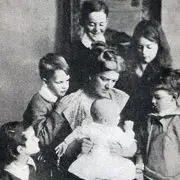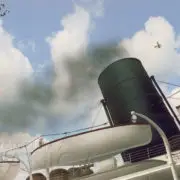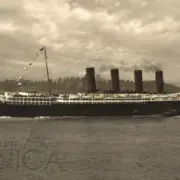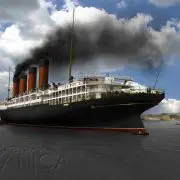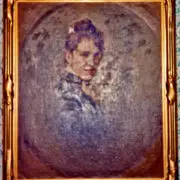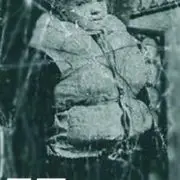The Lusitania : Part 7 : Passengers of Distinction
One wonders if movie theater owner Edgar Hounsell opted to bid on Lest We Forget as a feature attraction at his Imperial Picture Palace in West Bromwich, U.K. Hounsell was the manager of the Midlands Exclusive Film Company, of Birmingham. He and his business partner, Edward Barry, were returning from a trip to the United States, where they had been acquiring U.K. distribution rights to popular American films, when they survived the disaster.
The men were in the second class dining room when the disaster commenced. Hounsell described it thusly:
I was having lunch at the time the ship was torpedoed. There were two sittings at luncheon in our saloon, consequently one half of the second class passengers were on deck and the other half below.
So far as I could find out, only one torpedo struck the ship. I have not come across anyone who heard two torpedo explosions. There was a second explosion but that was caused by two of the boilers blowing up. The sound of the torpedo exploding was just a heavy dull thud. Immediately after she was struck, the ship listed over.
All the plates and dishes rolled off the table. The women started to scream. Everything was thrown into confusion, and there was an immediate rush for the upper deck. Had they made direct for their staterooms and put on their life preservers, of which one is provided for every person, I feel sure a great many more would have been saved. I stayed in the dining saloon until the rush had cleared off a bit. Then I went to the deck below, where my cabin was, and put on my life preserver. Mr. Barry did the same.
The electric lights went out just as I was proceeding to my cabin. As quickly as possible, I made my way to the upper deck. When I reached there, most of the boats that could be launched had already got away.
Owing to the big list of the ship. The boats on one side were rendered useless so they could not be launched. It was impossible to stand upright on the sloping deck. We were hanging on like flies, and people were rolling across the deck to the side.
I saw the ropes of two boats get jammed in the blocks as they were being lowered. One end dropped down, and all the occupants of the boats were shot into the water. Women and children were put into the boats first, and a few of the older men.
It was twenty minutes after the torpedo struck her that the ship sank. The torpedo tore a great hole in her side, and the portholes on the upper deck being open, when she listed the sea simply poured in through them. She was torpedoed at 2:10 p.m. and my watch stopped at half past two when I entered the water. As I could not swim, I thought there was not much chance for me, so I lit a cigarette and waited.
As the ship was sinking, I thought I would get clear of the suction, so I jumped off the stern, but the suction pulled me against the side of the vessel and seemed to pin me there. I could not get away and was dragged down with her, but as she sank bows first she also turned to one side. This seemed to release me, or although I went on down, I was not held by the boat. The pressure of the water hurt me, and I had a buzzing sound in my ears.
Suddenly I shot up to the surface again, at such a rate that part of my body came right out of the water. A second but weaker suction took me under again, and when I once more came up there was no sign of the Lusitania. The sea was covered with wreckage, among which people were floating about. I caught hold of a bit of timber, and clung on to that for about an hour.
Then I floated against an upturned collapsible boat, and held on to the side of it. I attempted in vain to climb on top of it, where there were three men clinging, but after a time one of the fellows managed to give me a hand and helped to pull me up.
We had been on this about half an hour when two more collapsible boats, one on top of another floated along. There was no one on them, so we clambered on and put up the canvas side of the upper one. Then by rolling the boat from side to side, we managed to get it to slide off the other one into the sea.
We were now fairly secure, and after we got rid of some of the water we had swallowed, we began to rescue some of the other people who were still floating around. One by one we hauled them into our boat the best way we could, and when a trawler came along we had no more than forty seven people in the boat.
Hounsell also detailed his reunion with Edward Barry:
The last time I saw him was as we dropped off the side of the ship together. I had almost given him up as lost when I did not come across him in the vicinity of where the ship disappeared and, as I learned afterwards, he had the same fear with regard to me. You can imagine my surprise and joy when, on Saturday morning he came to the hotel and we met again. He had been making the rounds of all the places to see if he could find me among the saved.
Mr. Hounsell died in Solihull, England, on January 26, 1947, at age 60.
Edward Barry, described at the time as “one of the best known men in the motion picture world” gave a brief but still interesting account of his experiences:
We were just finishing lunch when we heard a dull thud. Everybody jumped up, and I turned to Mr. Hounsell, with whom I went out to America, and said “That’s a torpedo or we have struck a rock!’ At the time we were in sight of land.
The stewards told the passengers that the watertight compartments were closed. The ship took a terrible list and everything glided off the tables. It was difficult to walk. Women and children started to rush about, and Mr. Hounsell and I went to our cabins and put on our life saving jackets, for everyone realized that the liner was doomed.
We helped a number of women and children to put on their jackets. I was struck by the orderly way in which people acted, the stewards calling out “This way to the boats” just as the man outside a picture house would shout “This way to the pictures.”
Barry and Housell spent some time cutting a collapsible boat free, before climbing the rail and jumping for their lives.
At the very moment I struck the water everything came crashing down from the deck and I was hit in the back. In the hurry, I had put on my life jacket upside down, and that probably saved my life for whatever hit me recoiled off the pad which was still in the middle of my back.
I struck out as hard as I could. There was nothing of the ship to be seen, but I observed various boats. A child floated by, and I caught hold of it and made for an upturned collapsible boat, at the side of which a steward caught my hand and held on until I had sufficient strength to scramble on to it.
Barry found four women on the craft, one of whom was an American widow and another of whom had been injured by debris. He could very well be describing widowed Belle Naish, injured Lady Marguerite Allan, and Rita Jolivet, all of whom drifted together atop an overturned collapsible. The child he attempted to save died of an injury to the left side of the skull.
Edward Barry was landed at Queenstown, and soon traveled on to Birmingham, where he arrived on Sunday morning “none the worse for the wear” except for some cuts on his lower legs.

